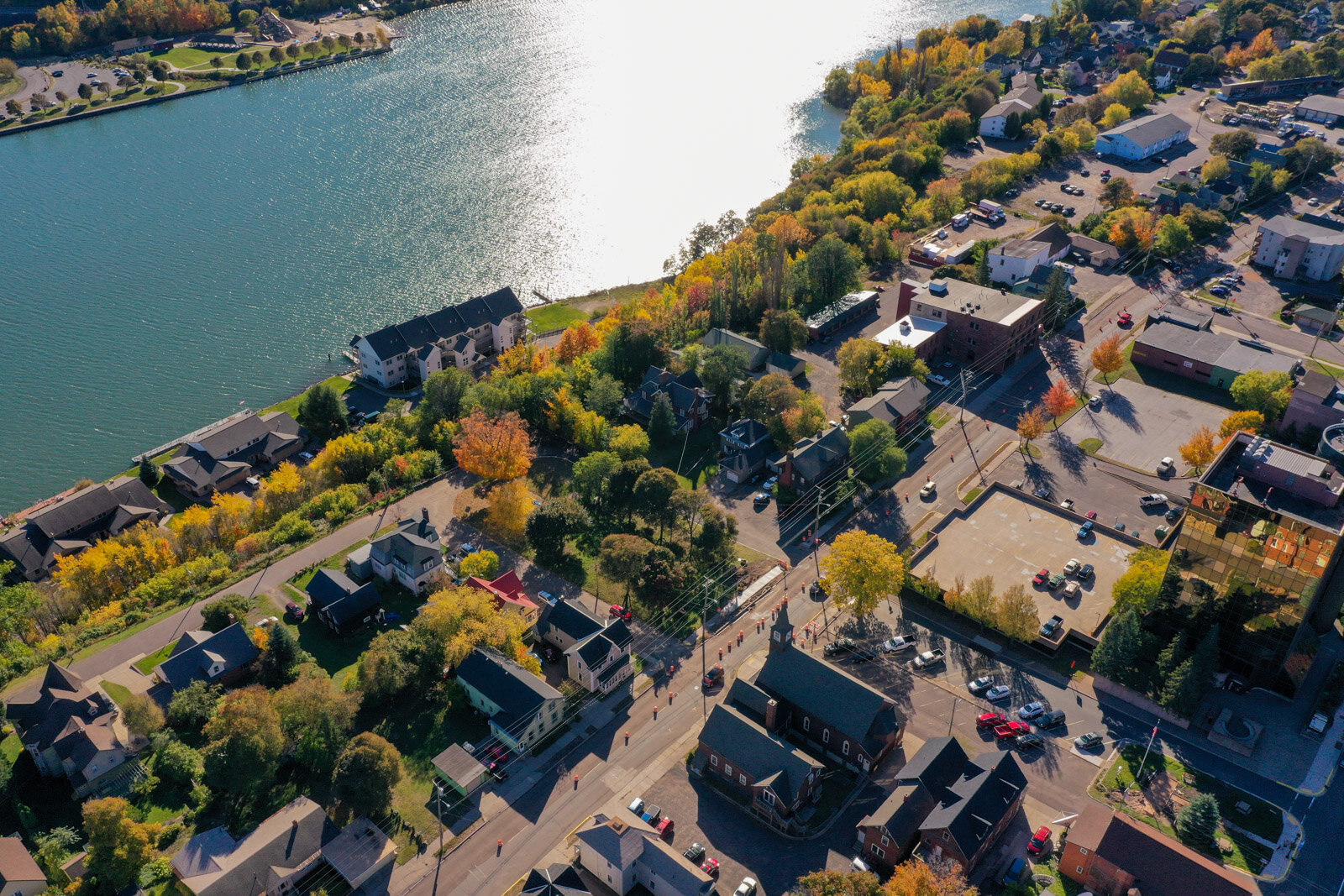
Community Planning
WUPPDR can provide a variety of community planning services and related technical assistance to the over 70 local units of government in the region.
Comprehensive or Master Planning
The overriding document for guiding overall growth and development, of a county, city, village, or township is known as a comprehensive or master plan. In Michigan, the procedure and contents of such plans is established by the Michigan Planning Enabling Act, Public Act 33 of 2008.
A comprehensive plan guides future development through a tiered set of issues, goals, objectives, strategies, and implementation actions. These items should be determined in part through a robust public engagement process tailored to the particular community. A plan also serves as an information source, containing maps, data, and overviews of topics such as demographics, natural environment, land use, public services and infrastructure, and the economy.
Actions pertaining to public works infrastructure are typically incorporated into a capital improvements program (CIP), through which projects become more apparent to the public and have a direct impact on budgeting. Priorities and objectives pertaining to land use can be implemented through a zoning ordinance, though such an ordinance is not required for a community. Other priorities and objectives can be incorporated and implemented through a variety of initiatives and regulations across local government.
WUPPDR occasionally develops comprehensive plans under contract – only when a direct request for proposal is made from WUPPDR by a local government. The most recent master plan we prepared was the Wakefield Township Master Plan of 2020.
WUPPDR does not provide technical assistance with zoning, but we can direct communities to private consultants that provide this service.
Public Engagement
WUPPDR hosts a public meeting on an upcoming recreation event.
In order to be effective, a plan or initiative must be illustrative of the concerns and priorities of the community at hand. A variety of approaches and tools can be used to engage the community and collect feedback. WUPPDR can assist, either alone or in partnership with other organization(s) with the following engagement mechanisms:
Public opinion surveys and questionnaires (online and/or by mail)
Public and committee meeting facilitation
Public presentations
Other interactive exercises, such as charrettes
These may be undertaken as part of an existing project or on a contractual basis when solicited by a community.
WUPPDR can also assist with the development of public participation plans, through which communities have tools and processes to make public engagement as effective as possible.
For more information about community planning, contact Jerry Wuorenmaa at jwuorenmaa@wuppdr.org.


